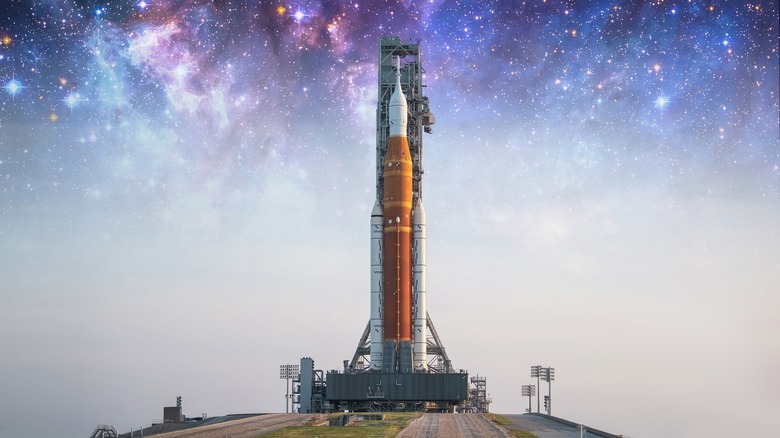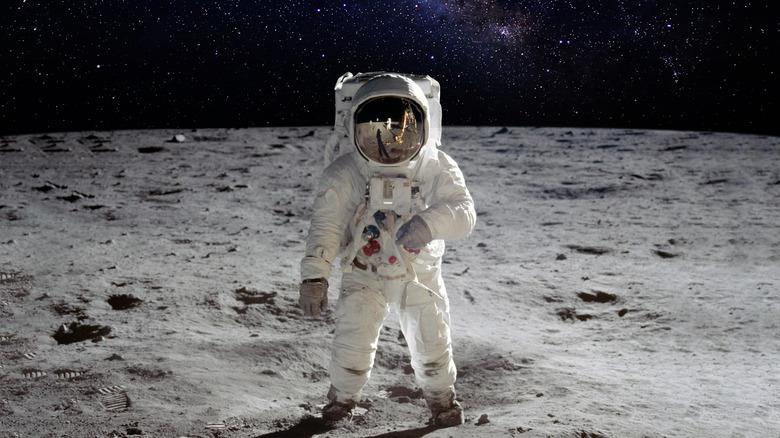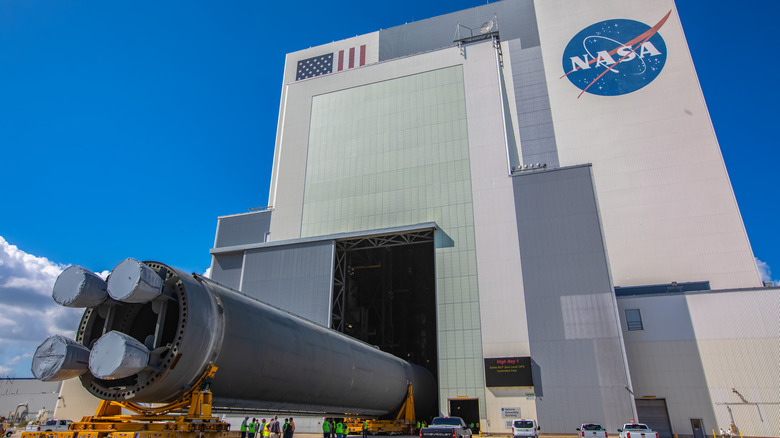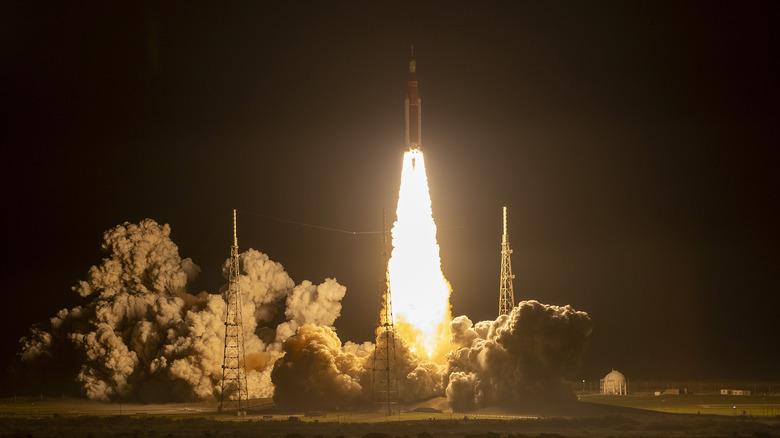What Caused NASA's Artemis I Launch To Be Delayed For So Many Months?
On November 16th, 2022 at 1:47 a.m. EST, NASA successfully launched Artemis 1 (via Space.com). This uncrewed rocket marks a historical significance as NASA's first moon mission since the Apollo program. It has been 50 years since we sent a group of astronauts to the moon on Apollo 17, making the Artemis program a long overdue successor for further moon exploration (via Britannica).
Scientists and space enthusiasts alike have been patiently (and sometimes not so patiently) awaiting the launch of the first rocket in the Artemis program. NASA's anticipated return to the moon wasn't always supposed to take this long to launch, but things found a way of delaying the first mission of the program. According to NASA's Spaceflight.com, the extensive history leading up to the Artemis program started over a decade ago in 2012 when NASA announced a planned launch of Artemis 1 in 2017. Repeated issues over the last few years and in recent months have put off bringing space exploration back to the moon.
Plans for returning to the moon started back in 2004
Plans for a return to the moon have been in the works for decades. In February 2004, President George W. Bush's administration released "The Vision for Space Exploration," which included the return of humanity to the moon and sending the first humans to Mars (via NASA). According to Universe Today, this policy was replaced with the NASA Authorization Act of 2010, which provided funding and timelines for sending the first astronauts to Mars by 2030, using moon missions as a precursor to longer-distance interplanetary travel.
Plans to focus more attention on establishing a permanent presence on the moon before attempting travel to Mars were announced in 2017 by Vice President Mike Pence during the inaugural meeting of the National Space Council, according to Space Policy Online. It was also during this meeting that NASA's acting administrator Robert Lightfoot updated the public on its newly expanded goals for moon exploration, stating (via NASA), "... among new areas, we will work with industry and the international community on robotic lunar landers that explore the nature of the moon and its resources, such as water."
A fuel leak delayed Artemis 1 from launching earlier this year
Many of NASA's operations were temporarily halted or moved to remote work in 2020 due to the coronavirus pandemic (via WAAY 31). This made assembling rocket parts impossible during the span of several months until personnel began slowly returning. It wasn't until early 2022 that NASA announced the potential launch date of August 29th, pending a wet dress rehearsal. This wet dress rehearsal would involve all the moving parts of a real launch, but would end before the countdown could finish (via Florida Today).
According to NASA, during the first wet dress rehearsal in April 2022, fueling of the Artemis 1 rocket was automatically halted when the temperature of the liquid oxygen propellant, the fuel used to power the rocket, rose too high, suggesting a leak. In a second attempt at a dress rehearsal, the Artemis 1 team ran into the same issue according to a NASA blog post. The leak wasn't found until a final dress rehearsal in June 2022, with NASA officials announcing plans to repair the leak (via Space.com).
After multiple delays, Artemis 1 finally launched in November 2022
Plans to launch Artemis 1 were set for August 29th, 2022, but were quick to fall through. According to Smithsonian Magazine, the same temperature problem that occurred during the wet dress rehearsals happened during the launch sequence. This caused NASA to scrub the launch to avoid mission failure. Later launch windows were scrubbed for similar reasons related to the rocket's fuel (via The Weather Channel).
After making repairs to the rocket, NASA decided to plan for a November 16th launch despite potential damage caused by the multiple hurricanes that hit the Florida coast during the past few months, according to Space.com. After months of concerning delays, NASA successfully launched Artemis 1 on November 16th, 1:47 a.m. EST. According to a NASA press release, Artemis 1 will deploy several small satellites on its trip around the moon to study the lunar surface when it arrives around November 21st.



